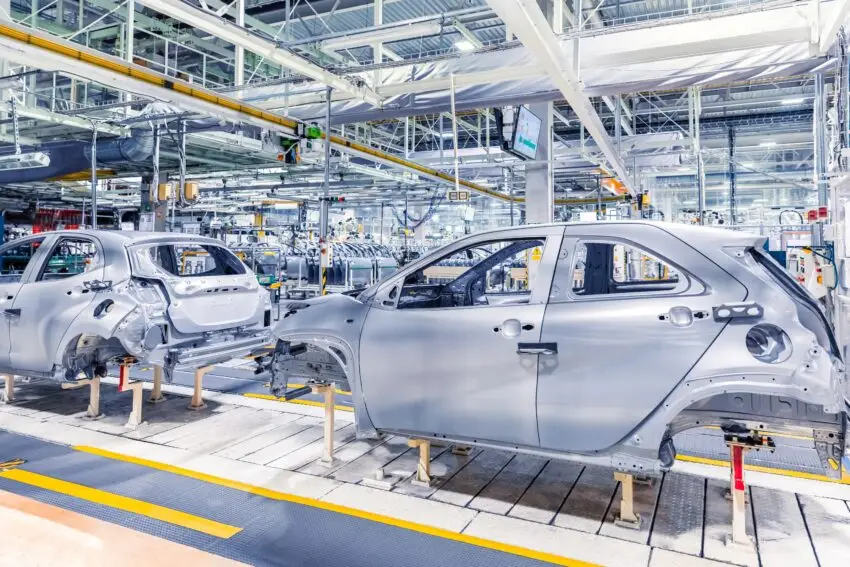UK car production has faced a significant 7.6% decline in the first half of 2024. This is largely due to the industry’s pivot towards electric vehicles (EVs).
Manufacturers are retooling their factories for this transition, resulting in 34,094 fewer cars being produced compared to the same period in 2023. Despite domestic demand rising, export numbers have dropped notably.
Production Decline
UK car production has seen a notable 7.6% drop in the first half of 2024. This decrease is primarily due to manufacturers shifting focus towards electric vehicle (EV) production. The decline equates to 34,094 fewer cars compared to the same period in 2023.
According to the Society of Motor Manufacturers and Traders (SMMT), a total of 416,074 new cars were produced in this timeframe. This drop was mainly driven by a significant reduction in exports, despite a rise in domestic demand.
Domestic Market vs. Exports
Cars produced for the UK market saw an increase of 17.7% year-on-year, totalling 106,157 units. By contrast, exports fell by 13.9%, with only 309,917 vehicles shipped overseas.
The European Union remains the largest export market, accounting for 55.4% of the total, followed by the US, China, Turkey, and Australia. This indicates a continuing strong demand from Europe despite overall production declines.
Shift to Electric Vehicles (EVs)
The move towards EV production has significantly impacted overall car production figures. Even with the focus on EVs, their production also fell by 7.6% in the first half of 2024, totalling 157,224 units.
Electric vehicles now account for 37.8% of total car production, a figure unchanged from the previous year. This suggests a steady but not growing interest in EVs.
The global slowdown in EV demand is also notable. Tesla, a major player in the EV market, reported a 45% drop in second-quarter profits compared to the previous year, alongside a 4.8% decrease in car sales.
Impact of Reduced Subsidies
The reduction in EV production is partly due to the withdrawal of subsidies in several European countries. For instance, France slashed its subsidies by 20% for higher-income buyers, while Germany ended its EV subsidy programme in December.
In the UK, grants for buying EVs were terminated in 2022. However, business buyers still benefit from some tax incentives.
Higher tariffs on Chinese EVs are another factor. The European Union recently increased tariffs from 17.4% to 37.6%, plus an existing 10% duty. This move was aimed at addressing “unfair subsidisation” of Chinese EVs.
UK’s Position on Tariffs
The UK’s stance on tariffs differs from that of the EU. Trade Secretary Jonathan Reynolds has stated that the UK remains “vigilant” but is unlikely to follow the EU’s lead.
The Trade Remedies Authority in the UK has not launched an investigation into Chinese EV imports. This indicates a more cautious approach towards imposing similar tariffs.
Global Market Trends
Globally, the demand for EVs is slowing down. This trend is reflected in the production numbers and the decisions of major manufacturers.
Tesla’s situation highlights broader market conditions. With a significant drop in profits and sales, even leading companies are feeling the pinch.
The shift towards more affordable EV models is a strategy being considered by manufacturers to boost sales.
Future Considerations
Despite current challenges, the move towards EVs is seen as a long-term strategy. Manufacturers are retooling their factories to support this transition.
The steady percentage of EVs in total car production suggests a committed shift, even if demand is temporarily down.
The industry is adjusting to new market realities, including reduced subsidies and increased tariffs. How this will impact long-term production remains to be seen.
The UK car industry is navigating a complex transition period. Despite a drop in production, the move towards EVs reflects a strategic shift for the future.
Significant changes, like subsidy reductions and new tariffs, are shaping the industry’s landscape. This evolution, though challenging, signals a committed push towards sustainable transport.


